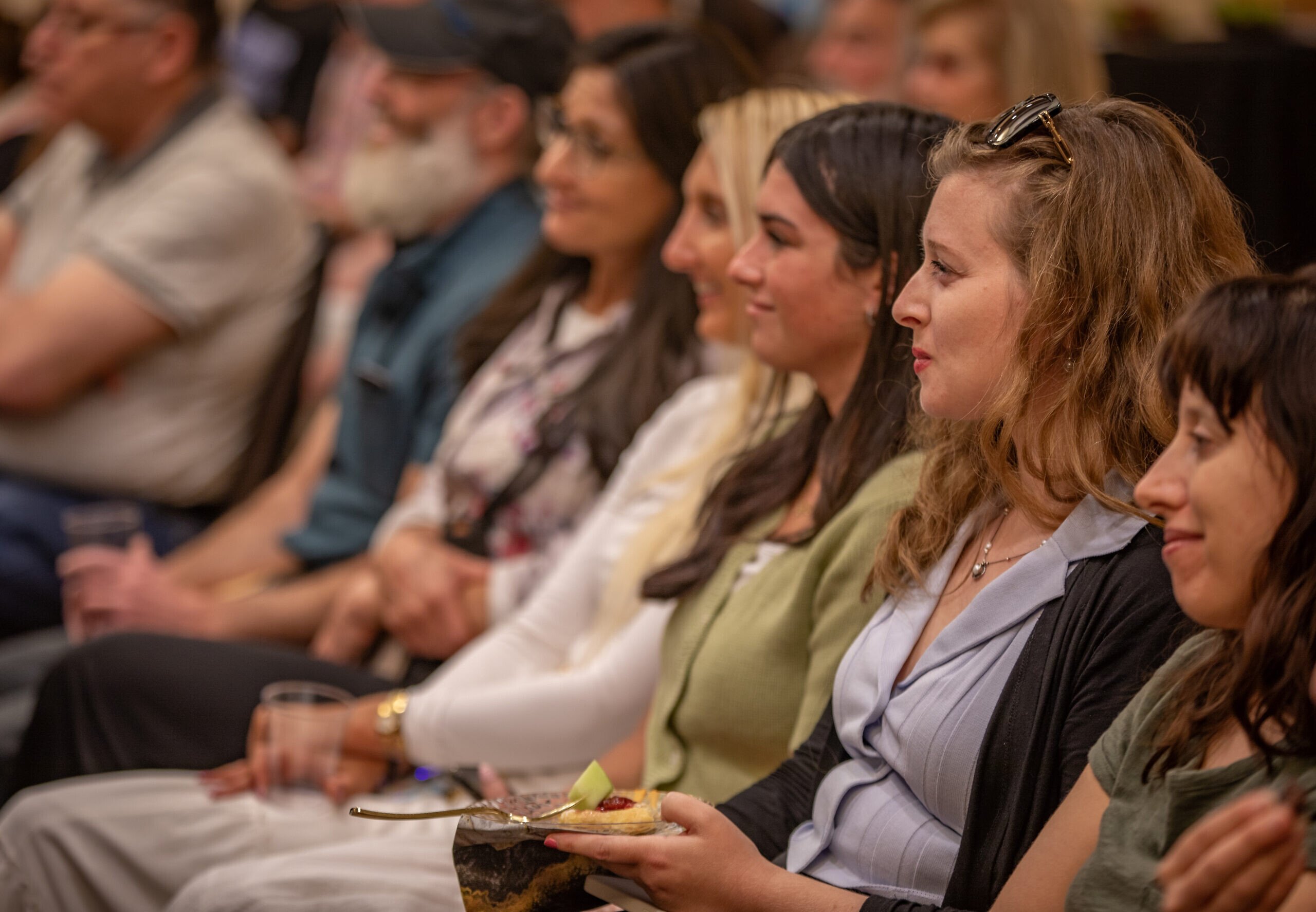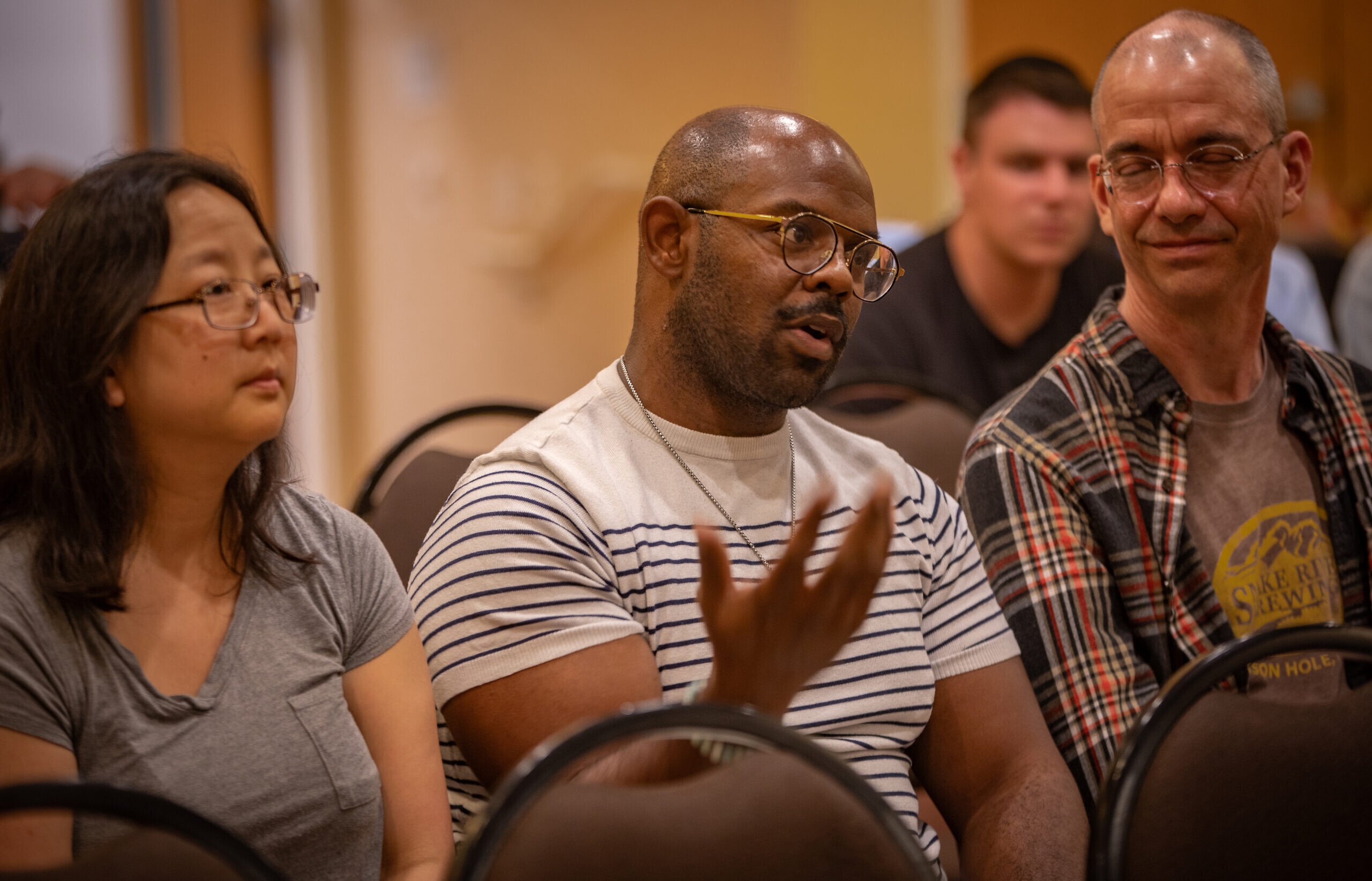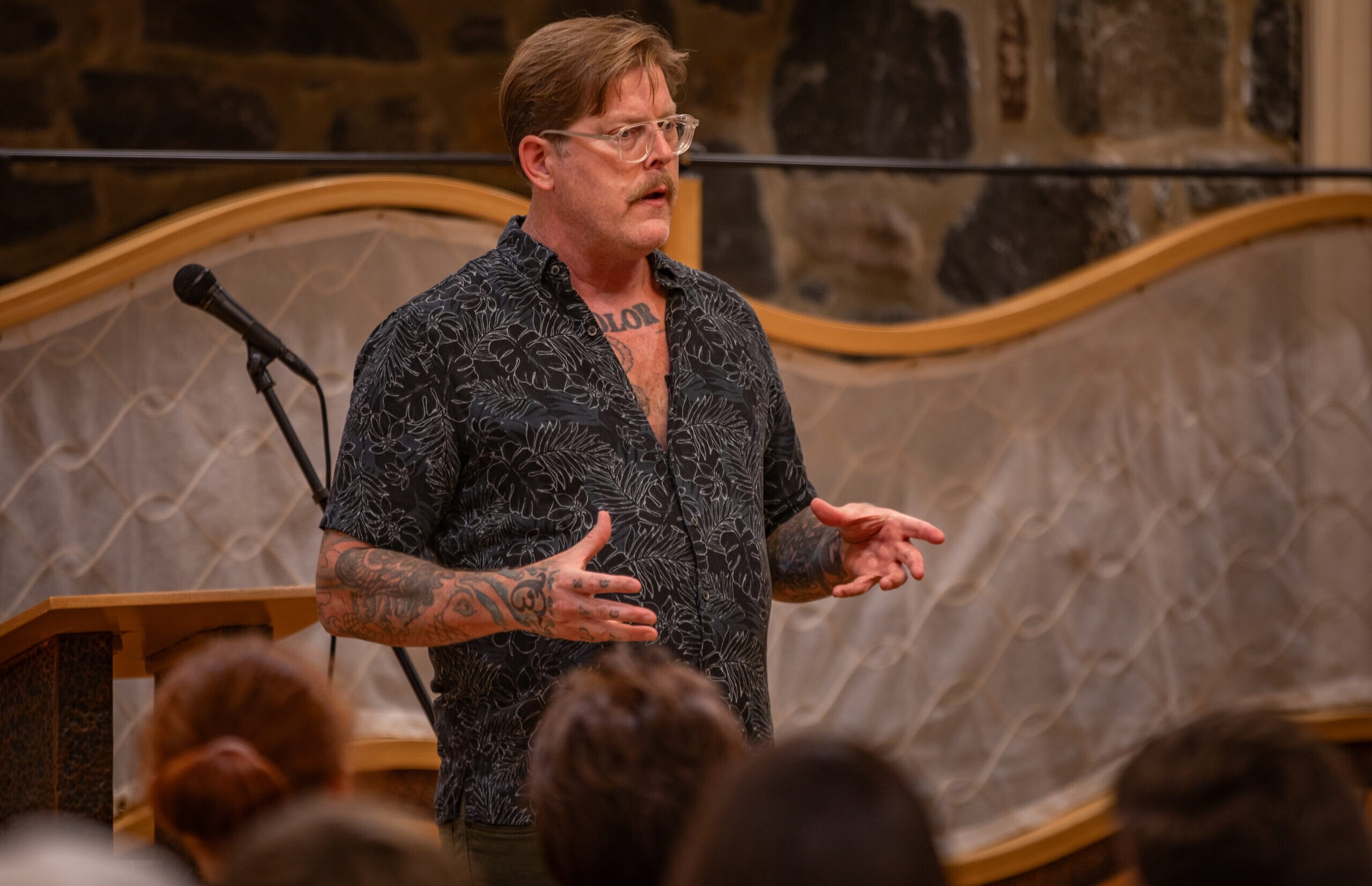
Arno Michaelis, a reformed neo-Nazi, told guests at Chabad of the Main Line in Merion Station, Pa., on Tuesday night that he is “committed” to his support of the Jewish community and Israel.
Mark Erlbaum, a member of the congregation, had met Michaelis years before, and the two struck up a friendship. Following the Hamas-led terrorist attacks in southern Israel on Oct. 7, 2023, Michaelis’s strong Zionist stance cost him many business relationships. To support and thank Michaelis for standing by the Jewish community, Erlbaum aims to connect him with Jewish institutions to discuss his journey from violent supremacist to preacher of love.
During his talk on July 22, Michaelis couldn’t point to anything obvious in his childhood that led him down this dark path. He had been raised by two loving parents in “a nice home in a nice neighborhood.” Nonetheless, he did identify several markers.
ADVERTISEMENT
Naturally aggressive as a child, Michaelis quickly became addicted to the rush he felt by making other kids on the school bus afraid. He also did not know how to process the trauma of watching his mother suffer from his father’s alcoholism, which, though never violent—indeed, he described his father as a “fun drunk” rather than a “mean drunk”—it meant his mother bore the financial burden alone. As a result, he distanced himself from his parents.
At age 14, he started drinking and listening to neo-Nazi punk rock and neo-Nazi songs extolling blood-and-soil nationalism, which gave voice to his anger and aggression. Michaelis insists that he has zero musical talent, but that didn’t stop him from starting a band with his skinhead buddies. He could scream, so he became the lead singer.

Eventually, he dropped out of high school, moved away from home and got a job with a Jewish employer. Though he sported swastika tattoos, his boss kept him on and even hired some of his skinhead friends. The workplace boasted cultural diversity, including among its employees a black man, a lesbian supervisor, an Asian and a Latino. The black employee shared his sandwich with Michaelis one day when he had been too drunk the previous evening to prepare food.
ADVERTISEMENT
His employer’s and co-workers’ kindness and acceptance belied Michaelis’s ideology. “The people that I claimed to hate treated me with kindness,” he said, “when I least deserved it but when I needed it most.”
“And in doing so, they drove home how wrong I was while at the same time shining a light to guide me to a better place,” Michaelis said.
The cognitive dissonance had always made him uncomfortable beating up minorities, even during the act.
“There were times when I was hitting someone, and there was a voice inside me saying, ‘Why are you hitting this person?’” he said. “I didn’t have the courage to even acknowledge that inner voice, much less answer it.”
But his baby daughter—and the actor Jerry Seinfeld—finally healed him. Michaelis’s girlfriend convinced him to watch an episode of “Seinfeld,” and he was hooked. Seinfeld’s character humanized Jewish people in his eyes for the first time.
When his girlfriend left him, Michaelis took stock of his life. Yet another friend, a father of two small children, had been killed in a street fight, and many more had been incarcerated. He knew that if he didn’t change, he faced death or prison; either one would take him from his 18-month-old. Ultimately, he said, that’s what saved him.

‘Bigots don’t want to talk to him’
Attendees of the event expressed their main takeaways. For Liz Berger, a doctoral student studying antisemitism at Gratz College in the Philadelphia suburbs, it was the transformative power of kindness and the insight into the journey of a white nationalist to the other side.
“Having someone outside of the Jewish community who can speak directly to that experience and that pathway is really valuable,” she said.
David Folkman, a member of the synagogue, said he was disappointed that Michaelis can’t reach actual neo-Nazi groups. “I think he’s a very admirable guy,” he said, who “needs to change the minds and the mindsets of bigots, and bigots don’t want to talk to him.”
 Reformed neo-Nazi Arno Michaelis speaks about his life experiences at Chabad of the Main Line in Merion, Pa., on July 22, 2025. Photo by Yakov Binyamin Turmelle.
Reformed neo-Nazi Arno Michaelis speaks about his life experiences at Chabad of the Main Line in Merion, Pa., on July 22, 2025. Photo by Yakov Binyamin Turmelle.
The senior rabbi of the Chabad center, Rabbi Shraga Sherman, hopes that the audience will take home with them the concept of the soul hiding inside every human being, “that behind all the bravado is a very empty hole, and the more we fill that hole with kindness and love, the more successful we’re going to be.”
During this era of hyperpolarization, photojournalist Yakov Binyamin Turmelle found the message particularly timely. “People are really struggling to learn to forgive each other and to start a new path in their lives,” he said.
After the event, Michaelis had a final message for the Jewish community.
“You’re not alone,” he said. “I am one of millions of non-Jewish allies who highly support the Jewish community, wholeheartedly support Israel’s right to exist; and I’m committed to carrying that forward in society, and I will stand alongside the Jewish people for everything I’m worth and for as long as I’m around.”
Reprinted with permission from the Philadelphia Jewish Exponent.
















